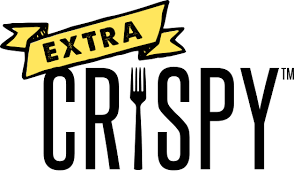
C.R.I.S.P.R. stands for clustered regularly interspaced short palindromic repeats. No idea what that means? Me either. I stumbled upon C.R.I.S.P.R. when reading an article on Sciencemag.org that discussed science lessons our next president will need to learn. I still don’t understand what the words means, but what you do need to know is that C.R.I.S.P.R. is what makes it possible for scientists to edits genes(It locks onto a specific DNA code, and make a precise cut). C.R.I.S.P.R. can essentially turn off and/or replace genes.

Why would this be important for Clinton or Trump to know? Well remember all that talk about how you may in fact be able to change your future baby’s genes to “perfection”? C.R.I.S.P.R. would make that possible.
Isn’t it already possible to alter DNA? Why yes it is, but C.R.I.S.P.R. is more cost-effective and time efficient, which in the world of science is the jackpot.
Who can C.R.I.S.P.R. be used on? Not only who, but what is the real question. This technology could help to eliminate deadly and life-threatening diseases that are in our genes and potentially introduce certain genes to prevent diseases. They help the farming industry with a stronger colony of crops. In fact, the Chinese have already used this technology to create a strain of wheat with a resistance towards powdery mildew. Lastly, they also help the farming industry with healthier livestock, and milk cows without horns. The first would obviously make for human beings in tip-top shape, and the latter two could potentially help feed those humans.
C.R.I.S.P.R is not by any means new technology itself, but it is fast-approaching. So-called designer babies are not so fast approaching and the technology has not been proven to be flawless quite yet. The risks are lower when dealing with wheat is a lab, than when talking about bringing to life a genetically-modified baby.
As the late Uncle Ben said, “With great power comes great responsibility”, (which by the way is a totally underrated quote because it really pertains to all areas of life) and C.R.I.S.P.R. is a powerful technology that will need to be regulated and funded, especially when it comes to the use of embryos. The tough questions then arise of who should fund them and how should they be regulated? Where do you draw the line? What classifies as genetic modification?
My question is for Andrew, if you’re reading this, which you probably are not. How do you feel about C.R.I.S.P.R.? Biology is your specialty, and I know that there are so many subsections of the topic, but as a scientist, do you see something of this degree as a dangerous slippery slope or a breakthrough for the world? Could we discuss this perhaps in class?
Sources:
http://www.nature.com/news/crispr-gene-editing-is-just-the-beginning-1.19510
http://www.sciencemag.org/news/2016/10/science-lessons-next-president
https://www.bloomberg.com/gadfly/articles/2016-10-20/crispr-therapeutics-ipo-bad-timing-is-costly
https://cosmosmagazine.com/biology/what-crispr-and-what-does-it-mean-genetics

LOVED the title, except I was a little sad when the blog didn’t go on to talk about why crispy bacon is better than non crispy bacon. (maybe next time). Anyways this post was so good! I had never heard of this type on science before, and it’s actually super interesting. Maybe Andrew will read it and we could do a class on it? I’m interested to see how this science plays out in the long run.